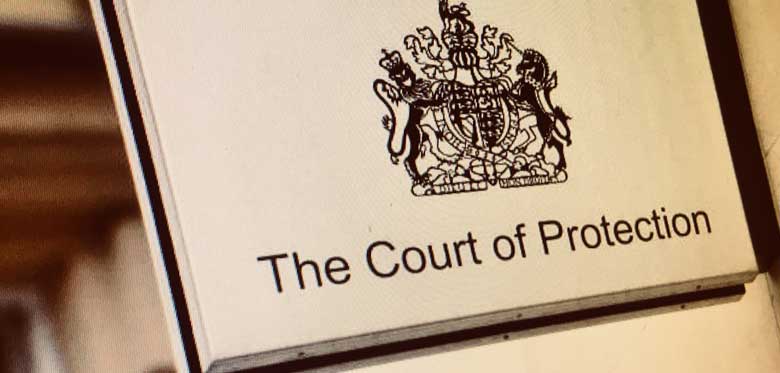Our specialist Court of Protection solicitor, Sophie Maloney, represented a vulnerable adult in an interesting and complex case where both a husband and wife wished to leave the care home where they had been placed. This involved two challenges to the deprivation of their liberty at the care home, an application on behalf of the husband and an application on behalf of his wife, run concurrently and heard together by the same judge.
This case concerned RT, an elderly male with a diagnosis of Alzheimer's dementia. RT's wife, NT, is an elderly woman who also has a diagnosis of dementia, and a history of depression and schizophrenia.
RT and his wife were admitted to hospital, both having fallen at home. RT was assessed as lacking mental capacity regarding his discharge from hospital, and a decision was made for him to be discharged to a care home with his wife for assessment and review. At the care home, RT and his wife resided in a shared room and were deprived of their liberty (if they tried to leave, they would be taken back to the care home).
Both RT and NT were objecting to being there, regularly saying that they wanted to return to their marital home. After a few months, a decision was also made by the care home manager for RT to sleep in a separate room to his wife, as he was not sleeping well, which was in turn disrupting his wife’s sleep.
We were approached by RT's IMCA (Independent Mental Capacity Advocate) and RPR (Relevant Persons Representative) to make an application to the Court of Protection, pursuant to s21A of the Mental Capacity Act 2005- to challenge the deprivation of his liberty at the care home, and review whether it was possible for RT to return home. NT's RPR had also instructed a solicitor to also make an application to court on her behalf. The judge listed both cases for court hearings on the same day and the two sets of proceedings were consolidated.
The key issue for the court to determine was whether it was in RT's best interests to return to his home from the care home where he had been taken after his hospital admission.
A number of concerns were brought to the court’s attention regarding RT and NT's situation in their marital home prior to being admitted to the care home. Difficulties arose from both RT and NT being resistant to care and support, only wanting to look after each other without any help from a care agency. The marital home had also fallen into significant disrepair and they had previously refused to allow repair works to be carried out. It would have cost a large sum of money to repair the property before they could potentially return home, but the couple did have more than sufficient funds to afford this.
As time progressed, RT changed his views about the care home; he was noted to express that he was settled, happy, in a routine and wanted to stay at the care home. However, his wife was still expressing a strong wish to leave the care home and return home.
All agreed that it was in the couple’s best interests to stay together, and it would be detrimental to them to be separated. This created a difficult decision for the court.
The court had to consider and weigh various factors in reaching a decision as to whether the couple should return home, including their wishes and feelings and the importance of their right to family life. After considering all of the evidence, the court made final declarations that it was in the couple’s best interests to remain at the care home.
On behalf of RT, we requested that conditions be placed on the deprivation of liberty authorisation; that RT's room should be more personalised, that a private service should be commissioned to facilitate RT accessing the community as he wishes and that a small safe should be provided for RT to keep small 'cash' sums in his possession, so he feels that he has more control over his money. These things were said to be important to RT and would make him happier living at the care home.
If you are a RPR, IMCA or an interested family member of a vulnerable person and there is a dispute in relation to their residence, care or contact with others (amongst other issues), we may be able to provide legal advice and representation to assist. We are also able to provide legal aid in these types of cases subject to eligibility. For further information, please contact us on 01616 966 229 or complete our online enquiry form and a member of our specialist team will contact you directly.


